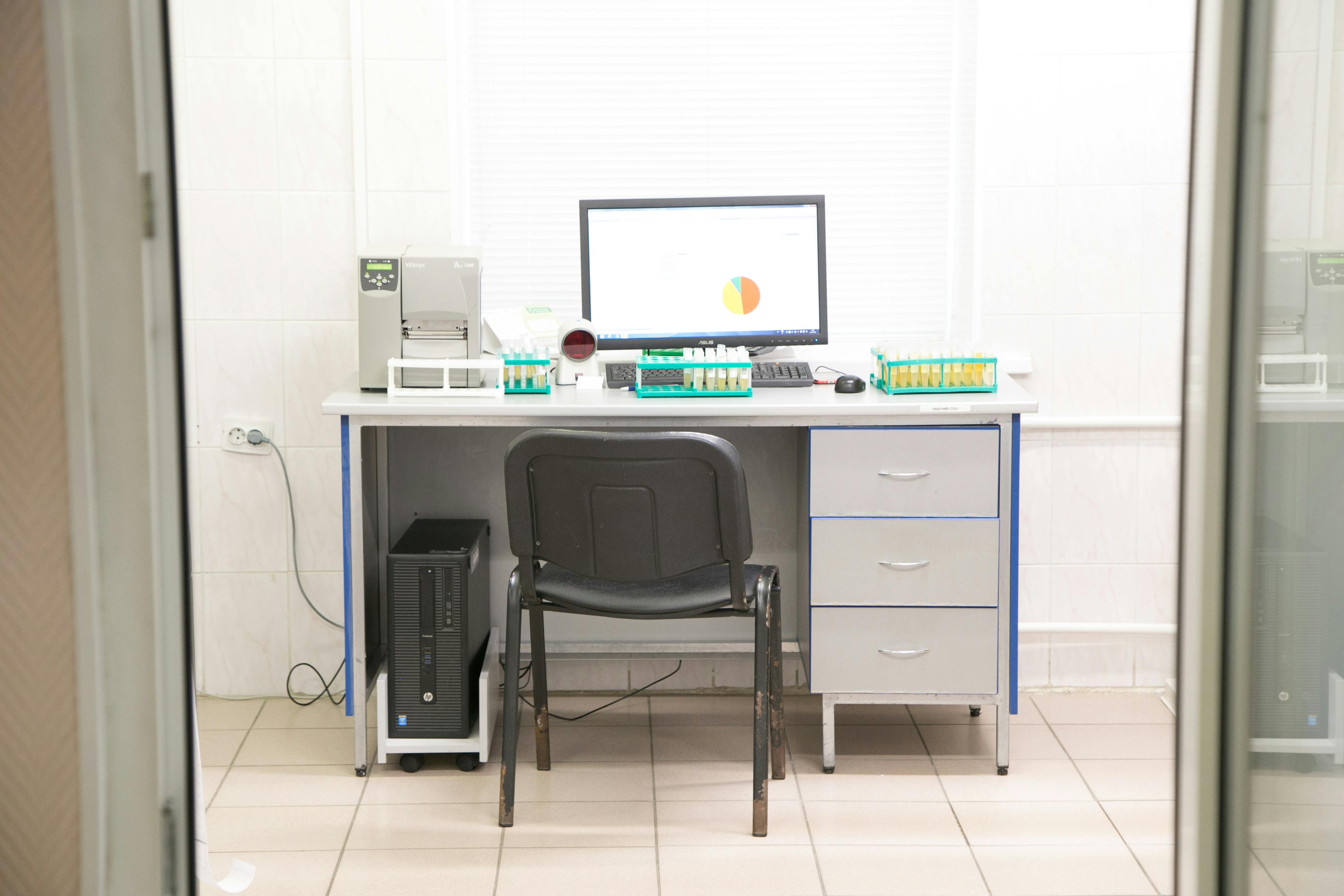
Staff Pharmacist vs. Clinical Pharmacist: Key Differences Explained
29 Apr, 20246 minPharmacists play a critical role in patient care by managing the distribution of important d...

Pharmacists play a critical role in patient care by managing the distribution of important drugs and medications. As medical institutions become more service-focused, the job of staff and clinical pharmacists is undergoing greater specialization. Present-day pharmacists are dealing with highly sophisticated healthcare systems that require them to possess skill sets that extend beyond medical knowledge. Continuous learning, wide experience, teamwork, and effective communication skills are some qualities that any staff or clinical pharmacy needs to attain long-term career success in the medical industry.
A pharmacy student who wants to choose an area of specialization for themselves must strive to develop sufficient knowledge about the differences between major pharmacy niches. This article dives deeper into understanding the differences between staff pharmacists and clinical pharmacists, including their responsibilities, salaries, and career paths. Read on to find out the distinct job profiles that separate the career trajectories of staff vs clinical pharmacists.
Staff Pharmacist vs. Clinical Pharmacist
The job roles of staff and clinical pharmacists are differentiated based on their focus areas and responsibilities. Medical institutions employ staff pharmacists to ensure the safe distribution of medicines. Clinical pharmacists are employed to play a more direct role in in-patient care and therapy. Here are some key distinctions between Staff Pharmacists and Clinical Pharmacists:
A staff pharmacist usually manages retail pharmacy positions, which deal with dispensing appropriate medications to patients. On the other hand, a clinical pharmacist works inside a hospital or care unit to manage the timely dosage of medication for patients undergoing treatment.
The prime responsibilities of a staff pharmacist include distributing medications, counseling patients about proper medication schedules, verifying prescriptions, and handling the storage of drugs inside dispensaries or retail stores. In contrast, clinical pharmacist duties revolve around collaborating with healthcare professionals to manage in-patient medication schedules and handling therapeutic drug administration.
Staff pharmacist duties can also involve inventory management and other administrative tasks related to maintaining a well-stocked pharmacy. On the other hand, clinical pharmacists might participate in patient rounds, and monitor medication dosing to optimize treatment outcomes.
Responsibilities of a Staff Pharmacist
Here are three main responsibilities of a staff pharmacist:
Dispensing Medicines
The primary duty of a staff pharmacist is to accurately understand doctor’s prescriptions and dispense appropriate doses of medicine to patients. This task requires pharmacy professionals to have a working knowledge of medicine storage, labeling, and dosage schedules.
Patient Counseling
Staff pharmacists are expected to understand the medication program of patients and offer them necessary counsel about managing their treatment courses. This includes explaining to patients how to take their medicines safely and discussing with them the potential risks or side effects of prescription drugs.
Maintaining Regulatory Compliance
Staff pharmacist duties include ensuring that the operations of their pharmacy comply with relevant laws, regulations, and professional standards. This required them to stay updated on regulatory protocols and use their understanding to manage medications safely. Staff pharmacist duties also include following standard guidelines to prevent errors in dispensing medications to patients.
The Role of a Clinical Pharmacist
The key duties of a clinical pharmacist are listed as follows:
Managing Medication Regimens
Clinical pharmacists play a crucial role in dispensing medications to patients during their treatment within a hospital. They are closely involved in the care and management of medication therapies for individual patients. Their job consists of visiting patients in care wards to assess and monitor their medication regimens, identify and prevent potential side effects, and take steps to enhance treatment results.
Collaboration with Healthcare Professionals
As the job of a clinical pharmacist is closely linked with in-patient care, they need to work in collaboration with other healthcare professionals within a medical setting. This requires them to function closely with physicians, nurses, and other trained caregivers. Coordination and effective communication skills are specially needed for clinical pharmacists to effectively participate in consultation meetings, and contribute to treatment decisions.
Consultation and Counseling
Clinical pharmacists are needed to educate patients about their health conditions, treatment protocols, and associated medication schedules. They provide personalized attention to patients under care and help them understand the course of their treatment. Their roles combine patient counseling and treatment monitoring protocols to improve health outcomes for individuals under their care. They also consult with other medical professionals to recommend the best or most effective medication options for patients.
Factors to Consider Between Staff and Clinical Pharmacy Roles
Pharmacy careers are brimming with exciting opportunities for learning and growth. As the healthcare industry evolves to provide better treatment options to patients, the roles of medical professionals become more dynamic. Although you can experience a fulfilling career in both staff and clinical pharmacy roles, there are still some factors that you can consider to solidify your choice. These include:
Career growth
The career growth opportunities for staff pharmacists revolve around taking on managerial or supervisory roles within pharmacy settings. After gaining experience in major pharmacy operations such as storage, handling, record-keeping, and distribution of medications; a budding staff pharmacist can obtain additional certifications to work in specialized pharmacies. Pharmacy experts can also consider opening their private dispensaries or retail drug shops in the future.
Growth options for clinical pharmacy professionals can include obtaining specializations in specific clinical processes such as critical care, cardiology, or psychiatry. With experience, clinical pharmacists can start an independent consultation practice or progress into administrative roles within healthcare organizations. Senior clinical pharmacists can also contribute to research and development, or work as educators for budding pharmacists.
Salaries
The salaries for pharmacy positions can vary depending on factors such as location, employer type, and specific qualifications. Entry-level roles usually offer a lower salary, but work experience and additional certifications can lead to compounding salary increases in the future. According to 2024 statistics, the annual salary of a staff pharmacist ranges between $108K to $148K.
Clinical pharmacist pay is usually higher than staff pharmacists as they are directly involved in patient care responsibilities, and their job involves higher degrees of medical expertise. On average, a clinical pharmacist can earn anywhere between $135K to $160K. Additionally, both staff and clinical pharmacist positions can come with employee benefits such as healthcare coverage, and performance-based bonuses.
Work environment
The roles and responsibilities of a staff pharmacist are limited to typical pharmacy settings such as dispensaries, retail pharmacies, and outpatient clinics. The work profile of a staff pharmacist could consist of inventory management and dispensing medications to patients. Besides these common functions, experienced staff pharmacy professionals can also find openings in drug development, regulation, or education.
Clinical pharmacists are more directly involved in the care and treatment of patients inside medical facilities. This means that their work environment is usually more busy and intense, as it requires them to provide immediate services to patients. Clinical pharmacists need a deeper knowledge of therapeutic medications, and clinical care processes to be effective at their workplaces. They are also expected to coordinate with other healthcare professionals to participate in real-time monitoring and decision-making processes within a hospital.
Search for Your Next Pharmacy Role with Quad Recruitment
Finding a job position that matches your unique skill set and work preferences can be a challenging task. As medicine evolves to offer specialized care, the demand for staff and clinical pharmacists is on an upswing. But how does a staff pharmacist find out the exact organizations and employers that can benefit from their skills? How can a clinical pharmacist increase their chances of being recruited by growth-oriented healthcare institutions? If you are someone who struggles with the same questions, Quad has an answer!
Join the USA’s leading pharmacy staffing experts to find top-tier jobs in the medical industry. Quad can connect highly qualified pharmacy professionals with verified employers who need their skills. So, if you are ready to unlock success in your pharmacy career, join the Quad Job Portal today!


